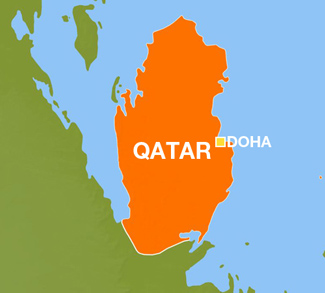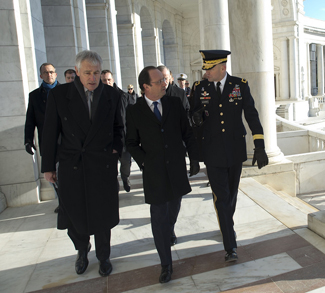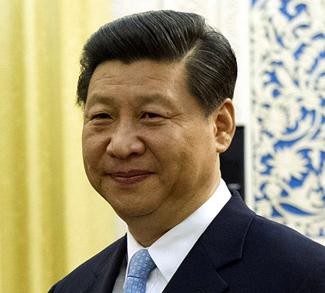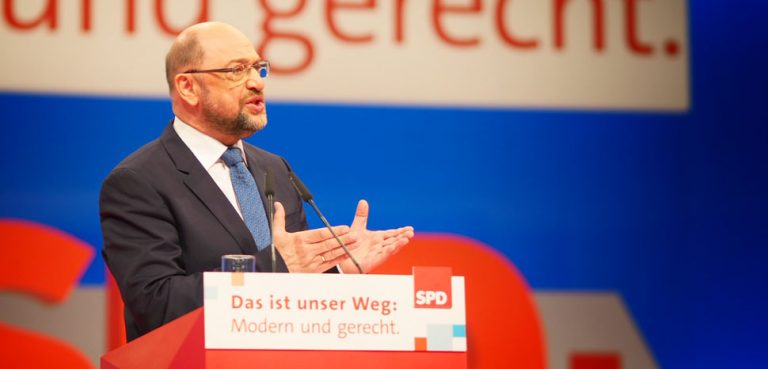Qatar’s rise from a sleepy Gulf state to a Middle East power-broker has taken many by surprise. It’s not the conventional considerations of land, military, or economic power that are driving Qatar’s foreign policy successes. Rather, it’s a case of having the patience to wait for opportunities and the savvy to make the most of them.
Qatar has been engaged in a slow process of expanding its soft and hard power strategic assets since 1995. Economically, it has attracted the foreign investment necessary to develop its vast energy reserves and this impressive wealth is not being left unguarded, as its affluence falls under the protective umbrella of American hard power. The Al Udeid Air Base looms just outside Doha, home to US and Air Force Central Command. It also stands to reason that Al Udeid will be expanded as American military assets are withdrawn from Iraq.
And then there`s Qatar’s impressive web of influence; its expanding soft power. Although Doha maintains close economic and military links to Washington, its foreign policy is far from one-dimensional in this regard. It also maintains working relationships with the cast of Washington undesirables such as Hamas, Hezbollah, and it has proven unwilling to tow the American line in regards to the Palestinian Authority. It even allowed Israel to briefly open a trade office in Doha, an experiment that ended in the wake of Operation Cast Lead. In short, the Qatari government casts a very wide net in search of friends.
Of course, Al Jazeera is the jewel in the crown of Qatar`s global influence. Since the Arabic-language news station was founded in 1996, it has proved useful in leveraging opinion in the Muslim world in a way that`s favorable to Qatari interests. For example, Al-Jazeera used apologetic language in regards to NATO operations in Libya – a far cry from the ‘aggression’ and ‘invasion’ talk that characterised the conflicts in Afghanistan and Iraq. According to 2009 diplomatic cables released by Wikileaks, the Qatari Government has even gone so far as to offer favorable Al-Jazeera coverage as a bargaining chip in past diplomatic negotiations.
It`s clear that Qatar does not suffer any shortage of strategic assets. But the fact remains that it’s still a small country of only 350,000 citizens – hardly a regional powerhouse. So what allowed Qatar to step into the spotlight? The answer is simple: a golden opportunity presented itself to put these assets into play.
The opportunity came from a shifting strategic landscape in the Middle East. Specifically, the region’s former leaders are fading into the background. Egypt finds itself mired in domestic politics for the foreseeable future and Syria looks to be the next domino to fall, leaving Iran without its trusted ally. Other hopefuls like Iraq, Turkey and Saudi Arabia have proved unwilling or unable to fill the power vacuum in the region.
When the opportunity of the Arab Spring presented itself, Qatar quickly mobilised its strategic assets to fill this leadership vacuum. It was the first gulf state to recognise the Libyan rebels, the first Gulf state to close its Syrian embassy, and it also came out hard and heavy for the Yemeni president to step down. It was also fundamental in transforming the Arab League from an archaic soapbox to a critical power-broker. These were high-risk, high-reward moves that were made possible by a lack of leadership from conventional regional powerhouses. They could have just as easily backfired, creating a market for a series of articles about where Qatar’s foreign policy went wrong. Thankfully, they didn’t.
It’s worth mentioning that Qatar’s foreign policy has been guided by pragmatism, not ideological considerations. Doha is not committed to the expansion of political rights as an end in itself. Rather, the human rights angle provided a convenient rationalisation for a policy that was steeped in geopolitics.
Qatar will continue to pursue a practical foreign policy based expanding its soft power throughout the region and beyond. Thus, nothing has changed, though it may seem that way because the policy is working so well.




